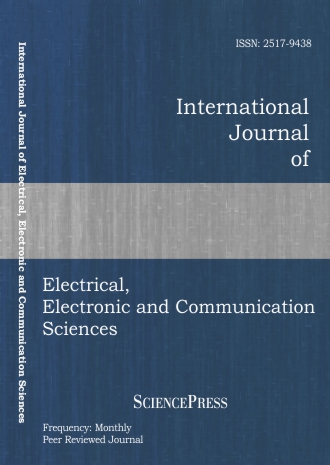
Scholarly
Volume:7, Issue: 7, 2013 Page No: 936 - 940
International Journal of Electrical, Electronic and Communication Sciences
ISSN: 2517-9438
1225 Downloads
Lifetime Maximization in Wireless Ad Hoc Networks with Network Coding and Matrix Game
In this paper, we present a matrix game-theoretic cross-layer optimization formulation to maximize the network lifetime in wireless ad hoc networks with network coding. To this end, we introduce a cross-layer formulation of general NUM (network utility maximization) that accommodates routing, scheduling, and stream control from different layers in the coded networks. Specifically, for the scheduling problem and then the objective function involved, we develop a matrix game with the strategy sets of the players corresponding to hyperlinks and transmission modes, and design the payoffs specific to the lifetime. In particular, with the inherit merit that matrix game can be solved with linear programming, our cross-layer programming formulation can benefit from both game-based and NUM-based approaches at the same time by cooperating the programming model for the matrix game with that for the other layers in a consistent framework. Finally, our numerical example demonstrates its performance results on a well-known wireless butterfly network to verify the cross-layer optimization scheme.
Authors:
References:
<p>[1] Jae-Hwan Chang and L. Tassiulas. Maximum lifetime routing in wireless